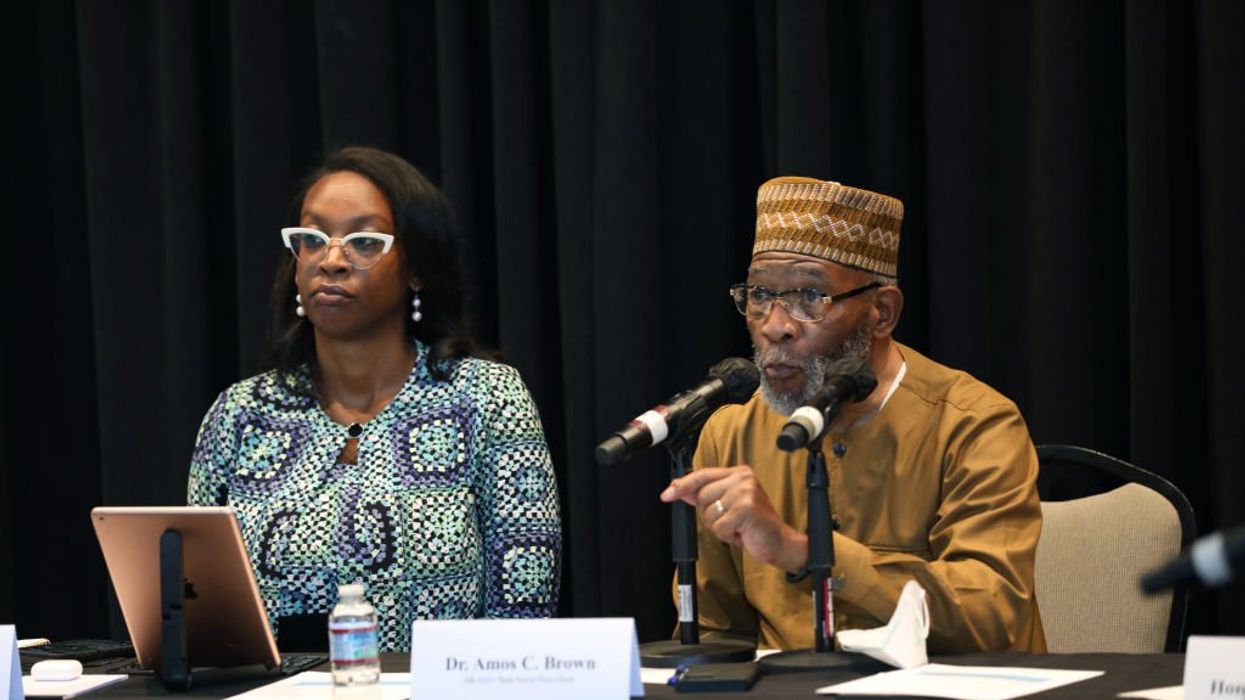
Carolyn Cole / Los Angeles Times via Getty Images

Residents of California, which was never a slave state, could possibly see the Newsom administration spend well over double the state's annual budget on race-based reparations.
California's Reparations Task Force has underscored that doing so won't settle old debts or atone for past sins. Instead, this massive redistribution of wealth, which may run upward of $1 trillion, would amount only to "the beginning of a conversation."
Economists recently told the nine-member committee that some of its desired reparations — namely those intended to compensate blacks for discriminatory housing, mass incarceration, and alleged over-policing — could cost over $800 billion, reported the Associated Press.
This approximation was made on the basis of modeling and population estimates.
$246 billion of this subtotal would go to qualified applicants whose neighborhoods were zealously protected by police or caught up in the "war on drugs" between 1970 and 2020. Each qualifying resident would see a payout of $125,000 for this particular grievance alone.
The economists figured $569 billion would make up for redlining in housing loans. Each qualifying black resident who lived in California from 1933 to 1977 would receive roughly $223,000.
The $800 billion figure reflects only a portion of what the committee reckons should be paid out in the interim, and even that total uncalculated sum will apparently not absolve the state.
The committee, formed by legislation signed by Democratic Gov. Gavin Newsom in 2020, noted that "it should be communicated to the public that the substantial initial down-payment is the beginning of a conversation about historical injustices, not the end of it."
This costly preamble to an even more expensive conversation does not include the proposed $1 million per black resident the committee claims will help rectify health disparities allegedly resultant of systemic racial inequalities. The U.S. Census indicated that as of July 2022, California had roughly 2.5 million black residents.
The Associated Press noted that the $800 billion figure, which is 2.5 times California's $300 billion annual budget, also does not take into account compensation for property allegedly taken unjustly by the government or the devaluation of black businesses.
The committee has until July 1 to recommend to California lawmakers how it ought to redistribute wealth along racial lines.
According to the committee, failing to implement these or similar recommendations would be a matter of inflicting further harm on blacks.
"Without a remedy specifically targeted to dismantle our country's racist foundations and heal the injuries inflicted by colonial and American governments, the 'badges and incidents of slavery' will continue to harm African Americans in almost aspects of life," the committee stated in its June 2022 interim report.
American civil rights activist and conservative Bob Woodson suggested that it was "insulting" to suggest that any "amount of money could ever 'make right' the evil of slavery."
Woodson told the Associated Press that the restoration of black communities depends upon a return to and embrace of faith and family, which is what first enabled them to thrive after slavery.
It is presently unclear whether state lawmakers will approve the committee's recommendations in full or even in part.
TheBlaze previously reported that Democrat-run San Francisco similarly has a reparations committee keen to impart millions to each qualifying black resident, but the feasibility of its recommendations are in serious doubt by critics and supporters alike.
After the city's reparations committee determined without bothering with mathematical calculations that each black resident should receive a $5 million lump-sum payment along with total debt forgiveness, sympathetic Democratic city supervisors noted the city probably couldn't afford it.
Supervisor Hillary Ronen, said, "I wish we had this kind of money in San Francisco’s general fund, but if we want to maintain the services that exist today, we do not."
Supervisor Joel Engardio noted direct payments "may not be feasible under current budget restraints."
Like Blaze News? Bypass the censors, sign up for our newsletters, and get stories like this direct to your inbox. Sign up here!